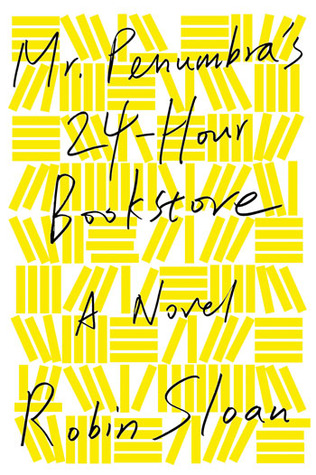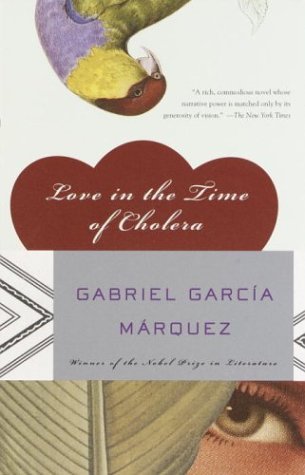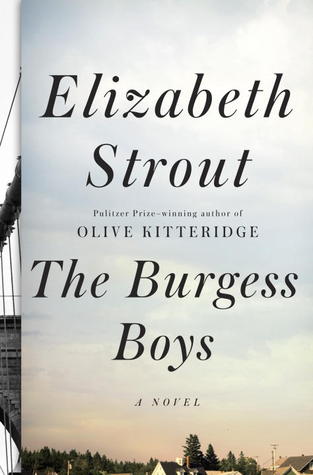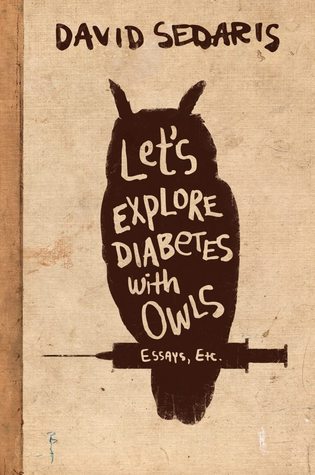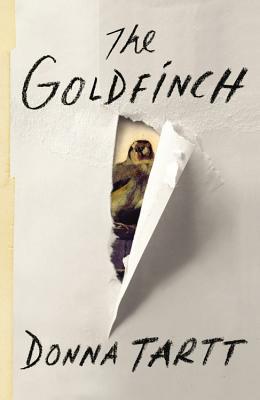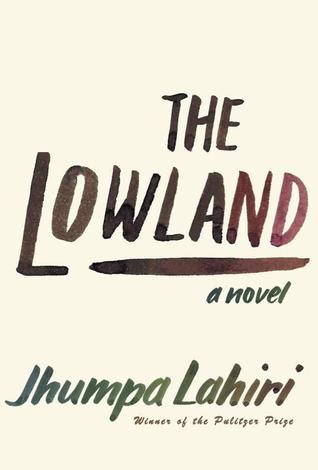Looking over the reviews on Goodreads as I prepare to post this review, I wonder what my problem is. Why didn't I get spine-tingles on the final page? I am forever in pursuit of that 16-again feeling that the best stories can give you. Have I lost that and become a victim of my own snarky reviewer's inner monologue?
I honestly don't know.
I see what Robin Sloan is trying to do. He's trying to write a clever, self-referential, nerdtastic ode to books and stories.
A noble pursuit.
And it is self-referential. But it's just not as clever as it thinks it is. As for nerdtastic, this nerd was somewhat unimpressed.
It's narrator, whose name I truly cannot think of without returning to the novel (Jenner? Jad? Clay? Yes, that's it, Clay), is your friendly San Franciscan Every-manchild, of indeterminate-but-aggressively-under-thirty age, who having lost his job as a graphic designer at a startup called NewBagel (OneWord) comes to make his living in the eponymous bookstore and has an army in implausibly well-connected and well-funded friends.
But, you may be asking, where is the Manic Pixie Dreamgirl? Don't you worry, my hipster friends, Kat the Hot Smart Programmer Chick enters about sixty pages in. As Clenner/Jay/Clad explains to Hot Smart Programmer Chick about his unusual participation in the secret society run out of Penumbra's dusty shop, she replies:
"That's amazing...Google's like a baby compared to that."
And Clay understands that she's even more of a dream girl than he first thought:
That explains it: this girl is a Googler. So she really is a genius. Also, one of her teeth is chipped in a cute way.
Aw. How cute.
Thank God an Average-looking Smart Programmer Chick didn't wander in. The story would never have gotten off the ground.
Kat, btw, is also the only female character of note in this story. A few others make cameos, but they are tokens.
Anyway, a pseudo-mystery plot ensues where Jlad and Kitty Kat pursue some mildly-engaging secrets, meanwhile creating a marriage of true minds between Google and a whole bunch of very dusty books. It's entertaining. But the whole time I just couldn't shake the feeling that in its clever, self-referential tone it believed itself to share a kind of intertextuality with a whole genre of books that are completely out of its league.
Sloan's point is fairly transparent: Books and technology aren't in opposition! They can work together! Sometimes people who read books know even MORE!
But unfortunately what happens is that Sloan undermines his own point. Because when he's trying to invoke Tolkien, Lewis, and even Borges, he's also writing sentences like this:
This is Mat's secret weapon, his passport, his get-out-of-jail-free car: Mat makes things that are beautiful.
And this:
Nobody's looking. I hoist the X high like a mythic sword.
In a book intended for smart people, there is a shocking dearth of complex sentence structure and interesting diction, original writing replaced instead with lists of cliches striving to sound climactic and similes that sound like they're trying to appease childhood readers of T. H. White but don't even come close.
And so Sloan goes on to do what I find that digital apologists-via-print do altogether too often: he oversimplifies. In trying to be clever, his narrator's voice just feels cute and immature. And the solution to his puzzle falls easily out of the sky, funded by his best friend from sixth grade who is now rich because...wait for it: he owns the world's best digital boob creation program.
Because the latent misogyny and female tokenism weren't enough.
I wanted to love this book. I wanted it to be smarter and fresher and more daring. I agree that books and technology aren't in opposition. But Penumbra argues against itself in its derivative simplicity.
You'd be better off picking up Tolkien again if you ask me.
Friday, June 20, 2014
Wednesday, June 11, 2014
Love in the Time of Cholera
Reading this book was a struggle. I've tried twice before, and failed to get past the first forty pages.
I'm glad that I read it.
But reading it felt a bit like I imagine it feels for people who don't like to read, to read.
The sumptuous prose, the sensual Colombian culture, the hyperbolic, almost mythic characters -- you've heard about it before. And even after much reflection, I still can't put my finger on why I don't love this book. It is, undeniably, a masterpiece.
I certainly appreciate it.
I understand why people love it. But I don't. I'd love to hear from people who do love it about what it means to them.
I will say, though, that this book moved me. In really rather painful ways. So I guess that might be part of it.
I think this is a novel about the ravages of passionate longing and the redemptive possibilities that remain in that longing even as it ravages. Its spurned lover, Florentino Ariza, who spends his life in affairs with woman after woman whom he cannot love from beneath the shadow of his adored Fermina Daza, becomes the mythic, and yet somehow simultaneously pathetic, champion of the kind of love that is so consuming, so controlling, so paralyzing, that it can be mistaken for cholera.
Their story is about the costs of idealizing the sharp passion of young love and the pain of remembering the past and the times when you were happiest:
Despite the perpetual rain, the sordid merchants, and the Homeric vulgarity of its carriage drivers, she would always remember Paris as the most beautiful city in the world, not because of what it was or was not in reality, but because it was linked to the memory of her happiest years.
As Florentino watches from afar, Fermina lives married life through cycles of alternating rage and seeming wedded bliss. Nothing really makes sense in this story. And yet there is a certain kind of revelatory wisdom about human nature in the intense nonsense of its characters' foibles and indiscretions.
In the end, (spoiler alert!), Florentino Ariza is faithful to Fermina Daza, faithful through his myriad acts of unfaithfulness and her marriage and "fifty-three years, seven months, eleven days and nights," and Garcia Marquez does grant them their own kind of happily ever after, fetid and sweltering though it may be, as after a lifetime of longing, they finally drift eternally together down a river to La Dorada, unable, and yet also undesiring, to disembark because of the cholera flag the ship's captain has chosen to fly.
This book is by no means prescriptive for how we ought to love. But it is absolutely descriptive of the ways that we do love. The ways that what Garcia Marquez calls "intrepid love" has a life and will of its own, and the ways it can change us irrevocably and completely without our control.
Love in the Time of Cholera is worth it. But its not easy. And maybe that is precisely the point.
Tuesday, May 27, 2014
Bark, stories by Lorrie Moore
Ever since I finished Lorrie Moore's most recent collection of short stories over a month ago, I haven't been able to get the following moment out of my head:
In the final story of the collection, "Thank You for Having Me," a mother attends the wedding of her now-15-year-old daughter Nickie's former babysitter.
As they wait for the ceremony to begin, Nickie, whom her mother describes as "both keen observer and enthusiastic participant in the sartorial disguise department" remarks:
"I can't believe Maria's wearing white."
I shrugged. "What color should she wear?"
"Gray!" Nickie said immediately. "To acknowledge having a brain! A little grey matter!"
A little grey matter indeed. All too many of Moore's characters seem lacking it. They marry, and remain married, nonsensically. They divorce yet still go on vacation together, date women even though they know them to be crazy, meet for romantic weekends in Paris and leave one another alone on a sidewalk cafe without indication of what their relationship might be, now or ever.
They converse without communicating:
"All husbands are space aliens," said her friend Jan.
"God help me, I had no idea," said Kit.
***
"We cheat the power of time with our very brevity!" he said aloud to Bekka, feeling confident she would understand, but she only just kept petting the cats.
***
"I don't think you should go," he announced.
"I'm going," she said.
"We'll be giving the children false hope."
"Hope is never false. Or it's always false. Whatever. It's just hope."
Fragmented, at times shallow, always bleak, this collection haunts me.
I loved it.
Moore's characters are the people who make up my Twitter feed and my Facebook friends. (If you, dear reader, are either, I assure you -- I don't mean you. I mean those other followers and friends, obvi.) They are the bits and pieces that all of our lives are reduced to while, increasingly, the only reflections of ourselves and our purpose that we really see are nothing more than selfies.
Her stories are tales from a world of online dating where it's totally acceptable and expected that men will exploit women and bad movies about weddings that are masquerading as feminist comedy and weddings that mean more than marriages and require their own websites and hashtags.
Her stories become the easy meaninglessness of modern life all boiled down into tales that makes their real emptiness stand out in stark relief against what stories used to mean, and might, if Moore has any say in it, one day mean again.
In the end of "Thank You for Having Me," the woman observes:
Ian played "Here comes the Bride." The bridesmaids were in pastels: one the light peach of baby aspirin; one the seafoam green of low-dose clonazepam; the other the pale daffodil of the next lowest dose of clonazepam. What a good idea to have the look of Big Pharma at your wedding. Why hadn't I thought of that? Why hadn't I thought of that until now?
How brilliant. The idea that we anesthetize ourselves with psychotropic drugs and bridesmaids' dresses alike -- each woman gets to pick her own style and shade! what a fantastic celebration of her individuality! -- these are the stories Moore is telling. But her caustic tone and precise prose do not allow us to accept these stories.
Instead, they challenge them. Where is the real meaning? Is there a future ahead of us where hope does indeed matter again? Will we make sense, will we communicate, will we empathize, or are we doomed to remain safely clad in the trappings of individuality that are, in reality, the uniforms of conformity?
I hope we will.
Whatever. It's just hope.
In the final story of the collection, "Thank You for Having Me," a mother attends the wedding of her now-15-year-old daughter Nickie's former babysitter.
As they wait for the ceremony to begin, Nickie, whom her mother describes as "both keen observer and enthusiastic participant in the sartorial disguise department" remarks:
"I can't believe Maria's wearing white."
I shrugged. "What color should she wear?"
"Gray!" Nickie said immediately. "To acknowledge having a brain! A little grey matter!"
A little grey matter indeed. All too many of Moore's characters seem lacking it. They marry, and remain married, nonsensically. They divorce yet still go on vacation together, date women even though they know them to be crazy, meet for romantic weekends in Paris and leave one another alone on a sidewalk cafe without indication of what their relationship might be, now or ever.
They converse without communicating:
"All husbands are space aliens," said her friend Jan.
"God help me, I had no idea," said Kit.
***
"We cheat the power of time with our very brevity!" he said aloud to Bekka, feeling confident she would understand, but she only just kept petting the cats.
***
"I don't think you should go," he announced.
"I'm going," she said.
"We'll be giving the children false hope."
"Hope is never false. Or it's always false. Whatever. It's just hope."
Fragmented, at times shallow, always bleak, this collection haunts me.
I loved it.
Moore's characters are the people who make up my Twitter feed and my Facebook friends. (If you, dear reader, are either, I assure you -- I don't mean you. I mean those other followers and friends, obvi.) They are the bits and pieces that all of our lives are reduced to while, increasingly, the only reflections of ourselves and our purpose that we really see are nothing more than selfies.
Her stories are tales from a world of online dating where it's totally acceptable and expected that men will exploit women and bad movies about weddings that are masquerading as feminist comedy and weddings that mean more than marriages and require their own websites and hashtags.
Her stories become the easy meaninglessness of modern life all boiled down into tales that makes their real emptiness stand out in stark relief against what stories used to mean, and might, if Moore has any say in it, one day mean again.
In the end of "Thank You for Having Me," the woman observes:
Ian played "Here comes the Bride." The bridesmaids were in pastels: one the light peach of baby aspirin; one the seafoam green of low-dose clonazepam; the other the pale daffodil of the next lowest dose of clonazepam. What a good idea to have the look of Big Pharma at your wedding. Why hadn't I thought of that? Why hadn't I thought of that until now?
How brilliant. The idea that we anesthetize ourselves with psychotropic drugs and bridesmaids' dresses alike -- each woman gets to pick her own style and shade! what a fantastic celebration of her individuality! -- these are the stories Moore is telling. But her caustic tone and precise prose do not allow us to accept these stories.
Instead, they challenge them. Where is the real meaning? Is there a future ahead of us where hope does indeed matter again? Will we make sense, will we communicate, will we empathize, or are we doomed to remain safely clad in the trappings of individuality that are, in reality, the uniforms of conformity?
I hope we will.
Whatever. It's just hope.
Sunday, April 6, 2014
Ode to Tana French
I've talked about Irish writer Tana French before, but as I finish up Faithful Place, I just want to mention that if you haven't yet encountered her novels, you have a treat ahead of you. They are the kind of books that I am jealous that you will be able to encounter for the first time.
In the Woods, in particular, is like Bones + SVU + CSI + Dexter all rolled into one with the intelligence and nuance of a real character-driven novel. It is flawlessly suspenseful, terribly human, and ultimately, moving.
And Rob and Cassie, the detective duo who lead the narrative down its thrilling twists and turns, are some of my perpetually favorite characters, full-stop.
The Likeness, then, comes back to Cassie after In the Woods has ended, and puts her undercover in an enclave of graduate students in English that reminds me of a certain mountaintop School of English that I know of, but with a sinister edge that will keep you up at night.
She's so smart and likable that you'll wish you could materialize her into your real-life best friend, and her story will absorb you like the best books always do.
Oh, and also it's super creepy.
The pleasure of these novels is fully absorbing, and they fall into that category that make me wonder at those few books that get real fame. You could walk down a beach seeing everyone there reading Gone Girl, but these mysteries are more suspenseful, their characters so much more likeable, and the prose -- well, the writing just doesn't even compare.
Oh Tana French, how I love you!
In the Woods, in particular, is like Bones + SVU + CSI + Dexter all rolled into one with the intelligence and nuance of a real character-driven novel. It is flawlessly suspenseful, terribly human, and ultimately, moving.
And Rob and Cassie, the detective duo who lead the narrative down its thrilling twists and turns, are some of my perpetually favorite characters, full-stop.
The Likeness, then, comes back to Cassie after In the Woods has ended, and puts her undercover in an enclave of graduate students in English that reminds me of a certain mountaintop School of English that I know of, but with a sinister edge that will keep you up at night.
She's so smart and likable that you'll wish you could materialize her into your real-life best friend, and her story will absorb you like the best books always do.
Oh, and also it's super creepy.
The pleasure of these novels is fully absorbing, and they fall into that category that make me wonder at those few books that get real fame. You could walk down a beach seeing everyone there reading Gone Girl, but these mysteries are more suspenseful, their characters so much more likeable, and the prose -- well, the writing just doesn't even compare.
Oh Tana French, how I love you!
Saturday, March 29, 2014
Beautiful Ruins: DNF
I'm really not sure by what standard Fresh Air's Maureen Corrigan judged Jess Walter's 2012 novel a "literary miracle," but not only did I not find it to be a literary miracle, I didn't even think it was particularly literary.
I found the characters flat and insipid, and the writing, as my friend Mary Ellen noted, like the binding of the book itself, tawdry.
The form, which many reviewers find avant-garde, felt slap-dash, and using Richard Burton and Liz Taylor as characters seemed just lazy.
I didn't finish it. Life's too short.
I found the characters flat and insipid, and the writing, as my friend Mary Ellen noted, like the binding of the book itself, tawdry.
The form, which many reviewers find avant-garde, felt slap-dash, and using Richard Burton and Liz Taylor as characters seemed just lazy.
I didn't finish it. Life's too short.
Sunday, March 2, 2014
Book Club Shout-Out
Book clubs can be tricky for English teachers. We can be a bit...bossy when it comes to the relaxed literary discussion.
But four of my friends humored me this October when we got together at my place and formed what is now known as the Decades Book Club. The five of us span five decades, from twenties to sixties. We are all teachers, most of use are mothers and wives, some of us have cats, all of us live reflective inner lives.
As I told them on Friday, the Decades Book Club is the best thing to happen to me this year.
Here's what we've read, and our take on each.
This was my suggestion because I love Olive Kitteridge so much -- and we all did. We are, by nature, a group who loves character-driven literary novels like The Lonely Polygamist and A Prayer for Owen Meany.
We all liked The Burgess Boys. It was a great starting place, and it led to lots of fruitful discussion about family and sibling dynamics. No one we loved as much as old Olive, but certainly worth our time.
Let's Explore Diabetes with Owls was our least favorite selection. Some of us are big fans of Sedaris, some not so much, but we all kind of felt that he jumped the shark on this collection a bit, exposing new depths of psychological distress and unresolved family issues. (Also he starts waaaay too many paragraphs with "The thing about..." -- "The thing about Hawaii..." "The great thing about sea turtles," "The thing about my unresolved obsessive-compulsive need to pick up trash on the Irish countryside...") His voice is just a bit too navel-gazing to be relatable. This was the only book that some members of the club (cough, ahem, guilty) did not finish.
Though I do really recommend "Loggerheads," if you happen to have a copy lying around.
This, dear Reader, is a book to read with a really awesome and committed book club. It is long. Perhaps longer than it needed to be. And I will admit that I might not have finished it without that tiny bit of book-club peer-pressure. Which is so something I never would have admitted before that I needed! I am a Reader-with-a-capital-R! I have a book blog for crying out loud! I don't need wine-lubricated discussions on my Google calendar to get me to read!
The Goldfinch, which, btw, all five of us finished in its entirety, is a tome, but it resulted in my favorite book discussion so far. And that discussion grew into a larger discussion about depression, self-medication, self-deception, and self-sabotage. And art. And philosophies for living and finding meaning.
My favorite read of the year. I love everything Lahiri does, though I will admit that it can be a bit uneven. This novel was so beautiful and sad, its characters so real. She had a beautifully detached way of story-telling that makes her voice so moving and yet, somehow, distant, like she is telling some kind of sad fairy tale.
This is the book out of the ones on my list that I would tell you without hesitation to pick up. I read it in a few days and lost myself entirely in its pages. A work of love and sadness. Read it.
Next up: Beautiful Ruins.
I have always been a believer in the ways that books make us better. And I know myself to be so much more fulfilled when I can regularly lose myself to a book.
But as I've said before, reading, and as a result, thinking, can be hard to find time for.
I am beyond thankful for the incredible group of women who have allowed me to find time to think, to connect, to reflect, and most of all, to laugh and to feel so profoundly supported by our shared experience of living meaningfully in the frenzy of modern life.
But four of my friends humored me this October when we got together at my place and formed what is now known as the Decades Book Club. The five of us span five decades, from twenties to sixties. We are all teachers, most of use are mothers and wives, some of us have cats, all of us live reflective inner lives.
As I told them on Friday, the Decades Book Club is the best thing to happen to me this year.
Here's what we've read, and our take on each.
This was my suggestion because I love Olive Kitteridge so much -- and we all did. We are, by nature, a group who loves character-driven literary novels like The Lonely Polygamist and A Prayer for Owen Meany.
We all liked The Burgess Boys. It was a great starting place, and it led to lots of fruitful discussion about family and sibling dynamics. No one we loved as much as old Olive, but certainly worth our time.
Let's Explore Diabetes with Owls was our least favorite selection. Some of us are big fans of Sedaris, some not so much, but we all kind of felt that he jumped the shark on this collection a bit, exposing new depths of psychological distress and unresolved family issues. (Also he starts waaaay too many paragraphs with "The thing about..." -- "The thing about Hawaii..." "The great thing about sea turtles," "The thing about my unresolved obsessive-compulsive need to pick up trash on the Irish countryside...") His voice is just a bit too navel-gazing to be relatable. This was the only book that some members of the club (cough, ahem, guilty) did not finish.
Though I do really recommend "Loggerheads," if you happen to have a copy lying around.
This, dear Reader, is a book to read with a really awesome and committed book club. It is long. Perhaps longer than it needed to be. And I will admit that I might not have finished it without that tiny bit of book-club peer-pressure. Which is so something I never would have admitted before that I needed! I am a Reader-with-a-capital-R! I have a book blog for crying out loud! I don't need wine-lubricated discussions on my Google calendar to get me to read!
Turns out, I really really do.
The Goldfinch, which, btw, all five of us finished in its entirety, is a tome, but it resulted in my favorite book discussion so far. And that discussion grew into a larger discussion about depression, self-medication, self-deception, and self-sabotage. And art. And philosophies for living and finding meaning.
Books are amazing.
My favorite read of the year. I love everything Lahiri does, though I will admit that it can be a bit uneven. This novel was so beautiful and sad, its characters so real. She had a beautifully detached way of story-telling that makes her voice so moving and yet, somehow, distant, like she is telling some kind of sad fairy tale.
This is the book out of the ones on my list that I would tell you without hesitation to pick up. I read it in a few days and lost myself entirely in its pages. A work of love and sadness. Read it.
Next up: Beautiful Ruins.
I have always been a believer in the ways that books make us better. And I know myself to be so much more fulfilled when I can regularly lose myself to a book.
But as I've said before, reading, and as a result, thinking, can be hard to find time for.
I am beyond thankful for the incredible group of women who have allowed me to find time to think, to connect, to reflect, and most of all, to laugh and to feel so profoundly supported by our shared experience of living meaningfully in the frenzy of modern life.
I am better for it.
Subscribe to:
Comments (Atom)

